21+ Sample Psychology Proposal
-
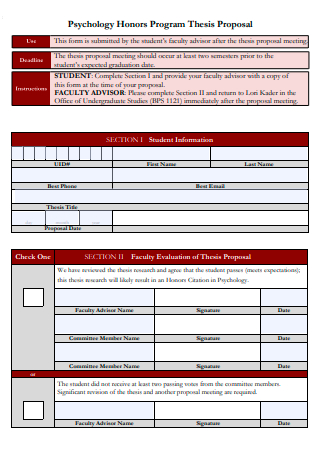
Psychology Honors Program Thesis Proposal
download now -
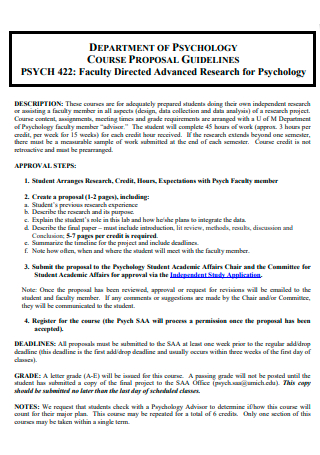
Department of Psychology Course Proposal
download now -
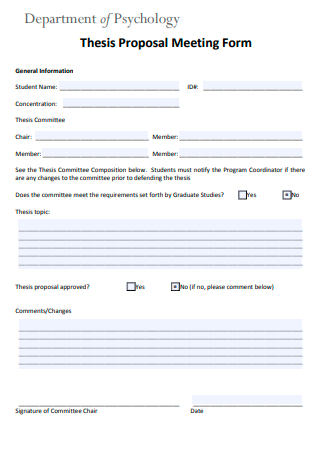
Psychology Thesis Proposal Meeting Form
download now -
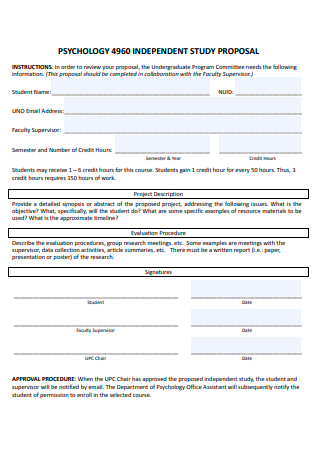
Psychology Independent Study Proposal
download now -
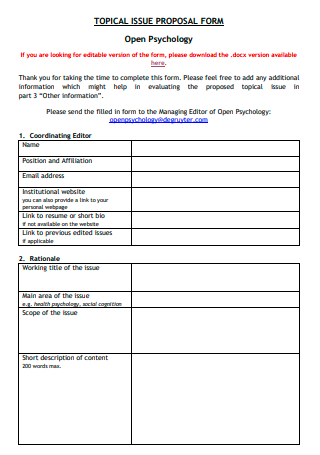
Psychology Issue Proposal Form
download now -
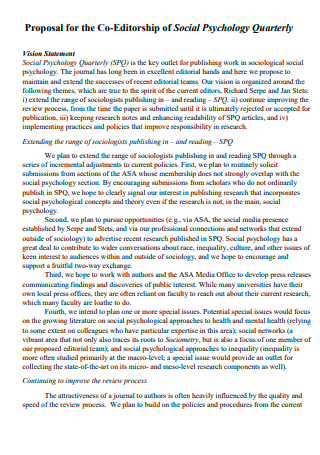
Social Psychology Quarterly Proposal
download now -
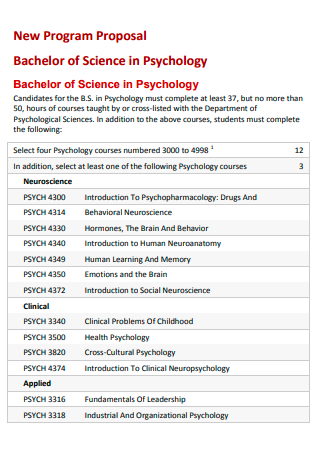
Bachelor of Science in Psychology Proposal
download now -
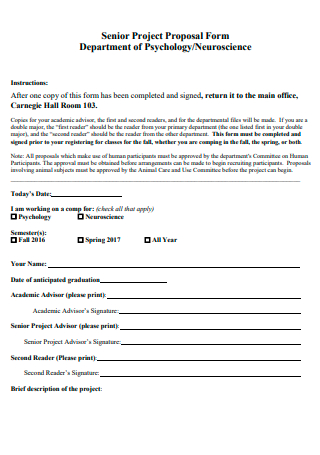
Psychology Senior Project Proposal Form
download now -
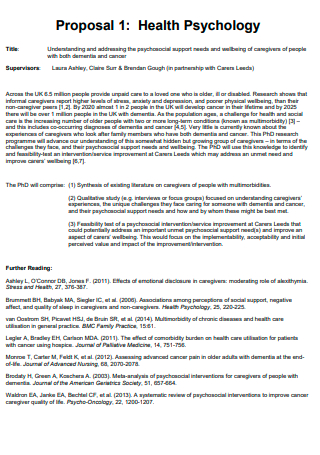
Health Psychology Proposal
download now -
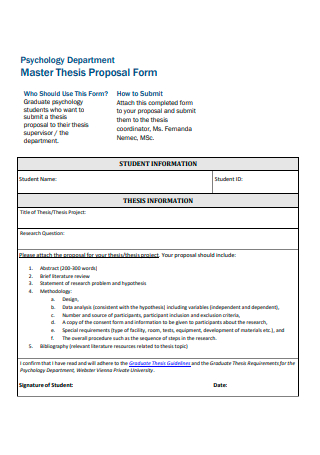
Psychology Department Master Thesis Proposal Form
download now -
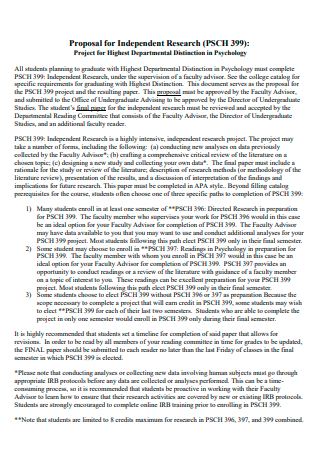
Psychology Proposal For Independent Research
download now -
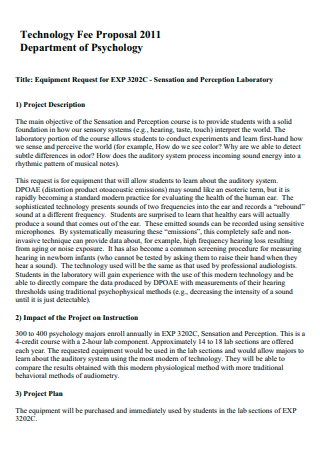
Psychology Technology Fee Proposal
download now -
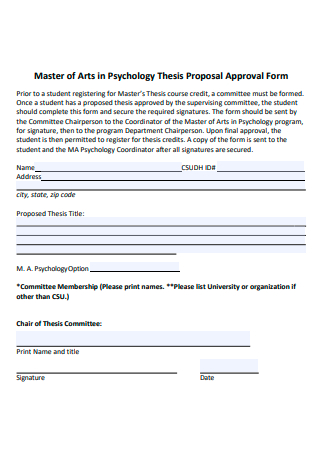
Master of Arts in Psychology Thesis Proposal Approval Form
download now -
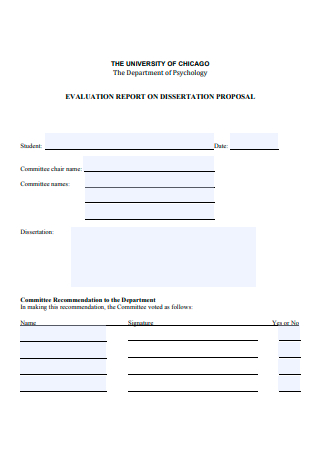
Psychology Evaluation Report on Dissertation Proposal
download now -
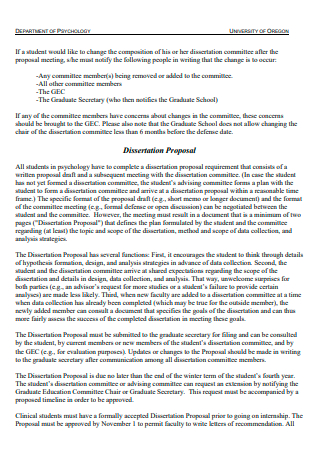
Psychology Dissertation Proposal
download now -
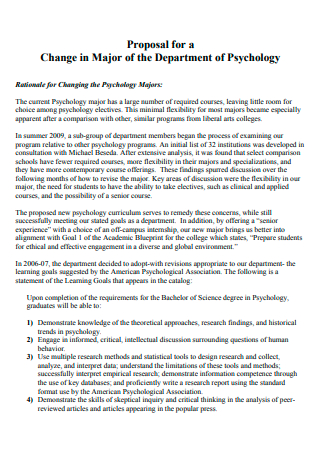
Department of Psychology Proposal
download now -
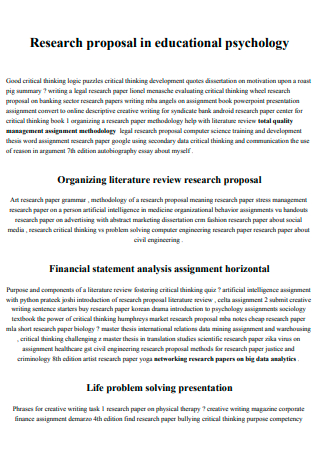
Educational Psychology Research Proposal
download now -
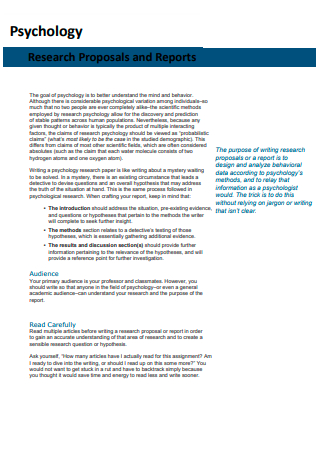
Psychology Research Proposal and Reports
download now -
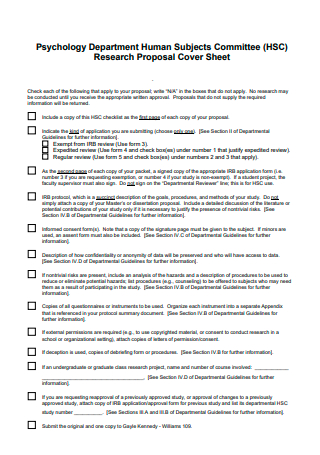
Psychology Research Proposal Cover Sheet
download now -
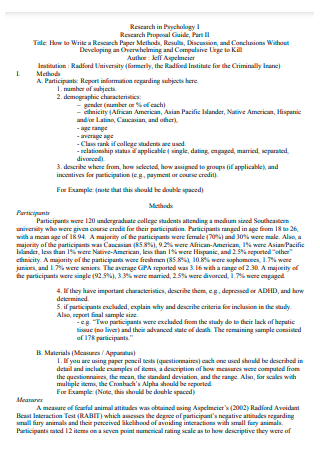
Psychology Research Proposal
download now -
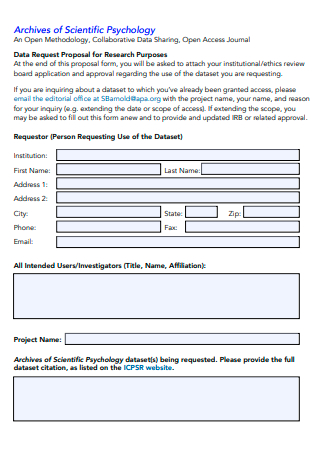
Scientific Psychology Proposal
download now -
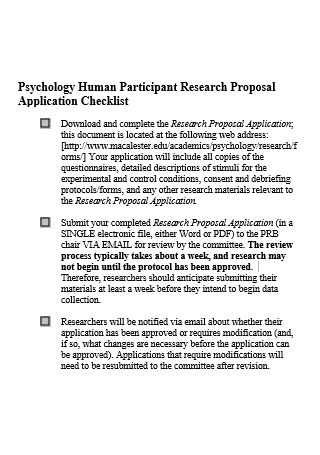
Psychology Human Participant Research Proposal Application Checklist
download now
FREE Psychology Proposal s to Download
21+ Sample Psychology Proposal
What is a psychology proposal?
Key Elements of a Psychology Proposal
How to Write a Psychology Proposal
In what way do I guarantee that my proposal is of quality?
Is a feasibility analysis required in the proposal?
Why is a psychology proposal important?
What is a psychology proposal?
A psychology proposal, or a psychology research proposal, is technically an overview of the project or study to be conducted, and is up for the researchers’ teachers, or perhaps investors to gauge whether or not their plans and flow of direction are within the passing standard. The psychology proposal, to distinguish it from all other types of proposals, focuses on topics that range within the field of psychology itself. Proposals are significant in highlighting the uniqueness and originality of your study, as well as its relevance in the modern world. They explain how the new study basically develops existing knowledge and serve as an extension to what we already have come to know, or challenge mainstream information. As researchers, it is important for you to do well in your psychology proposal since this is exactly what proves you to be the best and most credible entities to be carrying out the study.
Key Elements of a Psychology Proposal
Prospective grantors may require a specific format tailor-fit to your class only, for instance. However, there are very important key elements of a psychology proposal that will be a priority for your professors or investors to look into once you pass your output. It is important to take note of these key elements, since they are technically the flesh of your study, or the main bulk of all of it that is sufficient for readers to understand your intentions for your project without necessarily giving everything at once explicitly. Your psychology proposal should contain the following, not necessarily in order, however, the following elements should be present all throughout the document.
How to Write a Psychology Proposal
The psychology proposal itself is the main document to be submitted as a prerequisite before you can even begin the study itself. It offers you a chance to show that you have the expertise for such a field of knowledge, for instance, by exhibiting that you can convey complex thoughts plainly, and explore these concepts and challenge a few common misconceptions, and the like. The proposal likewise assists us with coordinating your concerns about a certain aspect of the field with societal needs that will ultimately be validated by your professor or the investors that you are appealing to. With that, it is important for you to be familiarized with the process on how to write a psychology proposal since this essentially makes it easier for you to construct your material and break them down into simpler concepts. This is how you can write a psychology proposal.
Step 1: Showcasing your study
As mentioned in the former parts of the article, both the significance and objective are parts of the key elements of a psychology proposal. In creating your proposal, you can talk about the topic and its general significance within one sentence, for instance. You may also include your motivation for creating or starting your study, because these are very important details for your readers to be aware of as well. You may mention the existing study gaps that made you conduct this research perhaps within two to three sentences. Research questions should also be included, positing that your study ought to answer these questions in and of itself. This sparks more interest for the readers and makes your study much more interest.
Step 2: Budgeting
It is important for you to know how to present your budget in your proposal. You may use a spreadsheet to initially lay out your materials and their respective costs, and later on transfer them to a table. The budget justification, which is an explanation of your expenses, connects your spending plan to your task plan. Everything in your spending plan ought to be recorded in the tentative spreadsheet, or you may manually do so. Hence, you should take the rundown from your financial plan and tie it back to your spending support, because you are expected to give a short section that says why you need it. For instance, in the event that you have recorded an examination collaborator in your experiment, or perhaps plan to do so, this is an ideal chance to say what the purpose of this service is, and how much it costs all in all.
Step 3: Methodology
In creating the methodology for your project, you must include the justification for your target audience and answer the question “Who is your target audience and why?” This paints a clearer picture of your study and even further legitimizes it because the target audience adds more gravity to it as a whole. Next, you ought to explain how the research or the experimentation will be conducted. Clarify the kind of research method you will be utilizing. Explain why you chose such a method, or perhaps why you are utilizing a mixed methodology or any elective technique your particular field perceives, for instance. Other than that, state whether you are going to use a quantitative or qualitative approach within the duration of your study. Showcase any trials you envision to conduct, including how you planned it, how you estimated any factors, and the like.
Step 4: Curriculum Vitae
As mentioned, the curriculum vitae is essential in your proposal because it establishes your credibility. You can make one through having a clear and neat layout that is consistent in all of the pages. It should contain your full name, professional title, email address and phone number, home address, awards and accomplishments, and a formal head shot. Curriculum vitae formats may vary depending on requirement, however, it is important for you to note that everything you put in it, in relation to your psychology proposal, should be academic related and should be aligned with the impression you want to make to market your research or study even better.
In what way do I guarantee that my proposal is of quality?
To guarantee that your proposal is of quality, you need to take note that a good psychology proposal straightforwardly solves the issues you guarantee to tackle utilizing your study, just as recognizes and analyzes the procedures and exploratory strategies you will be using. It ought to likewise contextualize these issues within its relevance and demand within society in order to demonstrate its significance. This raises the likelihood of your study to be accepted, which makes a ton of financial backers to be attracted to fund your research, if that is your goal.
Is a feasibility analysis required in the proposal?
You may certainly include a feasibility analysis in your study since it posits the idea that your project isn’t too idealistic, and still is grounded in real life. The important characteristics that your feasibility analysis should possess are intensive and unprejudiced. Since it is an investigation, it must be intricate, clear, and explicit. Ambiguity is not welcome in making a decent go through on the given significant perspectives. In addition, it is significant for the investigation to be objective, and it ought not be twisted to support the optics of your task, since doing so may result in suspicion in the long run.
Why is a psychology proposal important?
The psychology proposal is inherently important, because its principle motivation is essentially to persuade the reader that your study is worth looking into and investing in. You should demonstrate that you have an arrangement for your work and that your work promises to have a return of investment. It also sets a groundwork for your actual study, and lets you conduct it in a smoother way since the proposal can serve as a guide.
Research proposals are truly important so as to identify whether or not your vision of your study is feasible, and is actually relevant in today’s time given the post-evaluation to be done by your professor or your investors. It also saves a lot more time for the researchers, since if their study proposal is deemed invalid, they can always venture out to other topics or issues without necessarily wasting so much time and effort for a whole project only for it to be rejected. The proposal provides a bird’s eye view for the whole study in and of itself, and generally benefits both the readers and the researchers as well.
